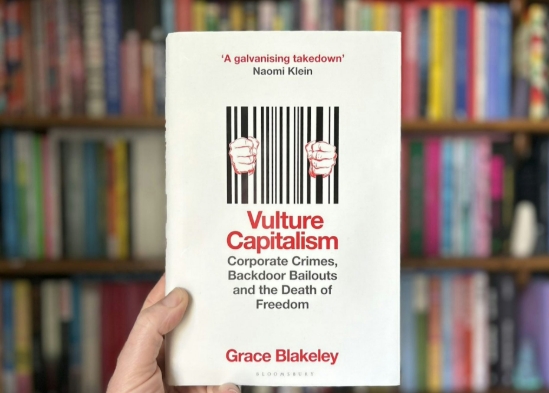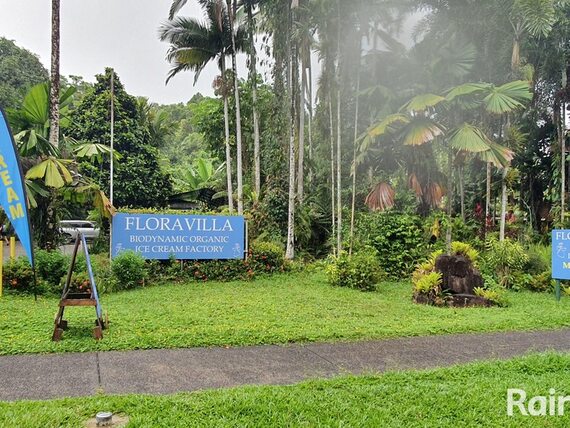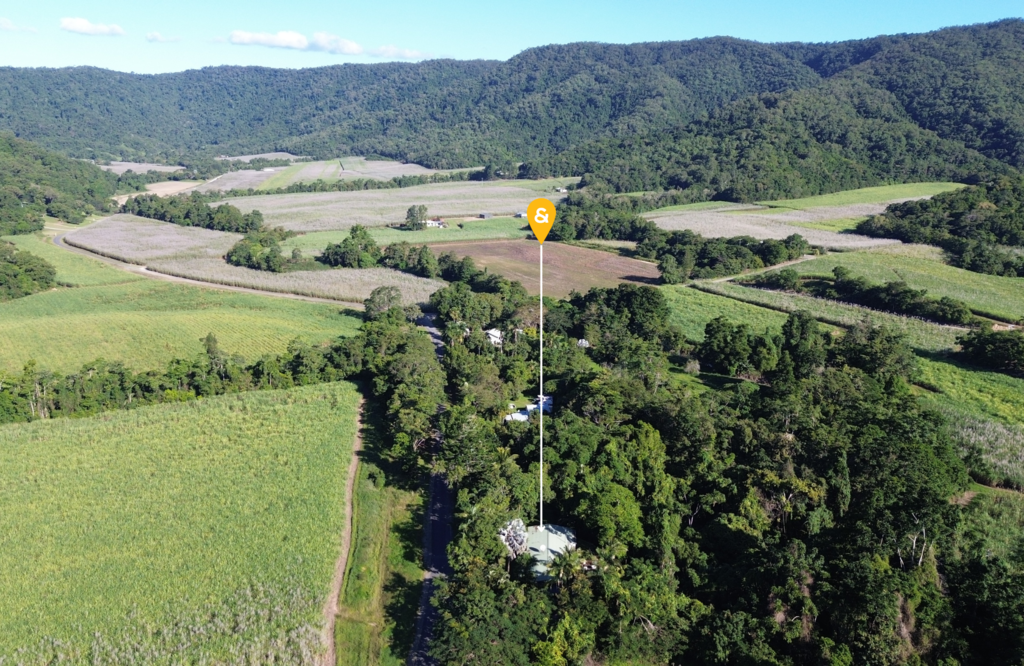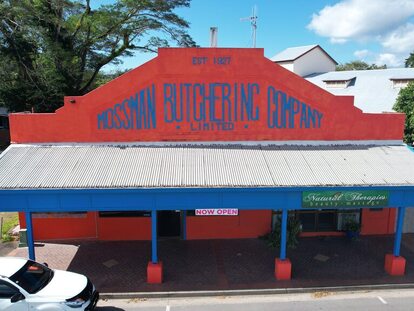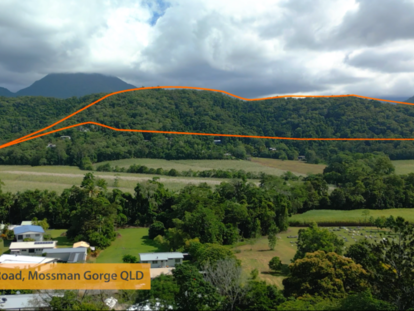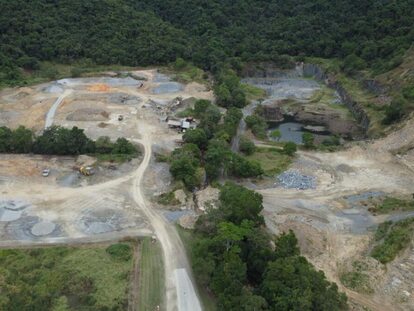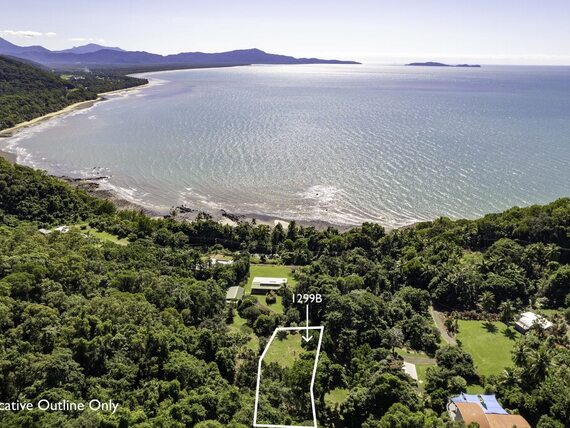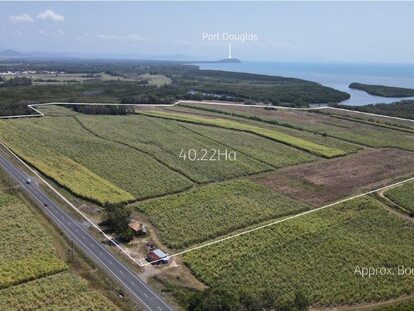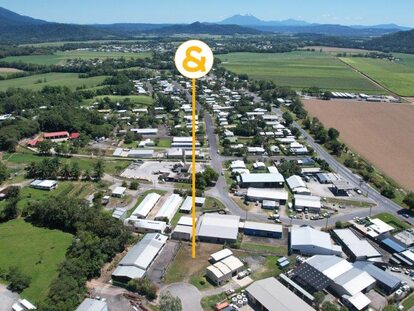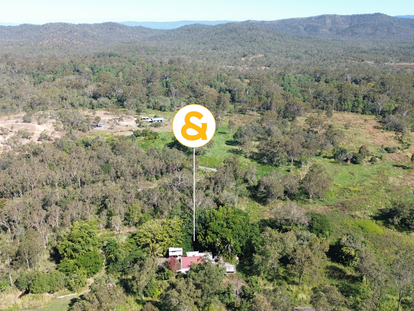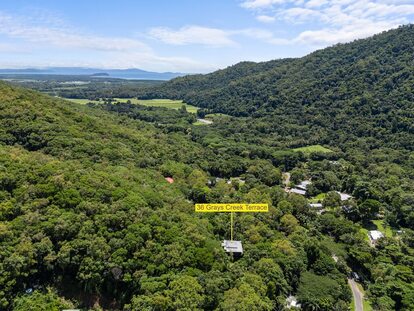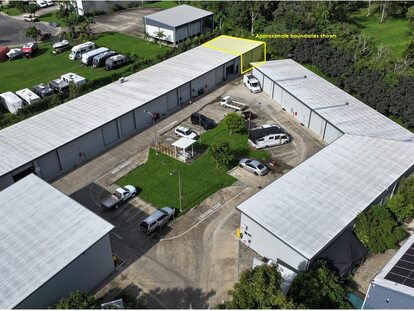|
(
44
)
|
Date
|
Start time
|
End time
|
Event name
|
Event description
|
Location
|
Cost
|
Website link
|
Event contact phone
|
Event contact email
|
Category (Maximum of 4 categories)
|
Terms and conditions
|
Name
|
Email
|
Phone
| |
|---|
| 1. |
Saturday 24 May 2025
2025-05-24T00:00:00+10:00
|
9:30am
|
12:30pm
|
Pooch Party
|
It’s the return of the most Pooch-tastic day of the year!
Clear your canines calendar and get ready to party! Join in for a day of fun and games, especially for our four-legged friends, their owners, and all animal lovers to socialise, picnic, and party!
This year, we’re meeting in Reynolds Park on the Garrick Street side and having a “Best Dressed Dog – Beach Parade”.
Best Dressed Dog Beach Parade
• Meet at Reynolds Park – Garrick Streetside, then a fun walk along Garrick Street to the beach entrance at the end, where we parade along the beach and then end up at the event space at the Port Douglas Surf Life Saving Club. It’s a Carnivale procession, like Mardi Gras, but for dogs, so dress up and go wild as we want this parade to really pop and turn heads!
Once at the Surf Club, the party continues when all the fun of the Pooch Party gets underway.
This event always gets tails, and tongues wagging has just become more and more fun each year, and all for a terrific cause. Dogless Humans are also welcome too, so come and watch the show. We can’t wait to see you there.
9:30am – Registrations Open
9:45am – Parade begins along Garrick Street to Sand Street then onto Four Mile Beach to The Port Douglas Surf Club
10:00am – Competitions begin with Best Dressed Dog parade in the judging arena
10:00am – 12:00noon Competitions continue in the judging arena – Best trick, Naughtiest Dog – Tails of Destruction, Dog with the waggiest tail, Owner/Dog lookalike,
12:00 noon – Douglas Top Dog announced and Raffle Drawn
12:30pm – Event ends
$5 donation per competition entry
BBQ thanks to Malones Butchers
Face painting and more thanks to Port Douglas Vets
This event is proudly sponsored by Ray White Port Douglas in support of Paws and Claws Animal Shelter. Every dollar raised at this free family event is donated to the newly opened, purpose built, animal refuge and boarding facilities in the Douglas Shire
|
Port Douglas Surf Lifesaving Club
|
Free
|
https://www.carnivale.com.au/event/pooch-party/
|
0417300885
|
[email protected]
|
Community Event, Family Event, Free Event, Live Entertainment
| |
Cassie Flinn
|
[email protected]
|
0417300885
| |
| 2. |
Saturday 3 May 2025
2025-05-03T00:00:00+10:00
|
1200
|
1600
|
Oaks Pool Party
|
Live music by DJ Bart
Family friendly
Free entry
|
Oaks Port Douglas
|
Free
| | | |
Family Event, Free Event, Live Entertainment
| |
Robyn Buick
|
[email protected]
|
07 4099 8900
| |
| 3. |
Sunday 4 May 2025
2025-05-04T00:00:00+10:00
|
4:00pm
|
7pm
|
David Cooke
|
Dave Cooke has honed his own inimitable style using guitar, ukulele, slide guitar & didge.
"An earthy blend of powerful vocals, acoustic guitar, lap slide guitar, didgeridoos and stomp box gives rise to a rich, full sound with interesting diversity and driving intensity". Enjoy lunch in the Bistro open from 11:30am and relax in air-conditioned comfort with ice cold drinks.
|
Club Mossman
|
Free
|
www.clubmossman.com.au
|
0740981434
|
[email protected]
|
Live Entertainment
| |
Melissa Di Pietro
|
[email protected]
|
0740981434
| |
| 4. |
Friday 2 May 2025
2025-05-02T00:00:00+10:00
|
7pm
|
10pm
|
Becks
|
Live and local at Club Mossman, solo artist Becks will be playing from 7pm. Enjoy one of our Head Chef's specials or choose from our extensive menu in the Bistro, opens at 5:30pm. Book online clubmossman.com.au.
|
Club Mossman
|
Free
|
www.clubmossman.com.au
|
0740981434
|
[email protected]
|
Live Entertainment
| |
Melissa Di Pietro
|
[email protected]
|
0740981434
| |
| 5. |
Wednesday 30 April 2025
2025-04-30T00:00:00+10:00
|
6:15pm
|
8:30pm
|
Johnston Road Carpentry Charity Corporate Bowls event
|
Register a team of minimum 4 people to participate in this year's Charity Corporate Bowls event. The winning team has the naming rights to the event next year as well as nominating which Charity receives the funds raised. $20 to register a team, $5 per player per night. Starts on Wednesday 30th April at 6:15pm until 8:30pm and the event runs over 4 weeks. Come and join the fun, network and win some prizes! Giveaways and Nibbles on the night, Major prize pack sponsored by Byron Bay. Contact the club on 4098 1434 or email [email protected]. Hurry as places are filling up fast!
|
Club Mossman
|
$20 to register a team, $5 per player per night
|
www.clubmossman.com.au
|
0740981434
|
[email protected]
|
Sport Event
| |
Melissa Di Pietro
|
[email protected]
|
0740981434
| |
| 6. |
Saturday 26 April 2025
2025-04-26T00:00:00+10:00
|
9.30am
|
11am
|
Yoga Course for Beginners - 6 weeks
|
This course will teach you all the basics so you can confidently join any class and feel at home.
Foundations of asana, posture alignment, how to use your breath and become master of its dynamic and calming potential. Meditation and the benefits and techniques of controlling the mind.
These lessons will provide you with practical skills you can use in your life to find calm , peace and happiness and to be able to let go of stress and negativity. You will feel at home in your body .
|
Port Douglas Yoga Shala , Above The Book Lounge, Warner Street, Port Douglas
|
$120 for the 6 week course
|
www.portdougasyoga.com
|
0455 035 185
|
[email protected]
|
Workshop or Training
| |
Lesley Jane Johnston
|
[email protected]
|
0455035185
| |
| 7. |
Saturday 26 April 2025
2025-04-26T00:00:00+10:00
|
9.30
|
10.30
|
International tai chi & chi gong day
|
Every year there is a world wide celebration of people that practice the ancient art of qi gong and tai chi.
We improve our physical health and our mental health. In a divided world we realise we are all connected . In every country at 10 am on Saturday 26 April people will gather and practice tai chi and qi gong together.
We invite everyone to come and be part of this event.
|
Mossman, George Davis Park, opposite the market
|
Free
| |
0488349713
|
[email protected]
|
Arts & Culture, Community Event, Free Event, Sport Event
| |
Frieda van Aller
|
[email protected]
|
0488349713
| |
| 8. |
Sunday 27 April 2025
2025-04-27T00:00:00+10:00
|
3:00pm
|
6:00pm
|
Rob Longstaff
|
Sunday session at Club Mossman with Rob Longstaff performing from 3pm. Powerful vocals with humorous lyrics, passionate guitar playing and charm make him a one-man-groove-machine that runs with or without amplification. Bistro is open for lunch and dinner and bookings can be made via our website.
|
Club Mossman
|
Free
|
www.clubmossman.com.au
|
0740981434
|
[email protected]
|
Live Entertainment
| |
Melissa Di Pietro
|
[email protected]
|
0740981434
| |
| 9. |
Saturday 17 May 2025
2025-05-17T00:00:00+10:00
|
11:00
|
12:30
|
Bottomless Brunch
|
Sip, savour & splash all day! Start your weekend the right way with our Bottomless Brunch at The Lilypad, perfect for the whole family. Your Brunch Experience Includes:
A delectable buffet brunch featuring all your breakfast favorites
Optional 1.5-hour drinks package with bottomless Mimosas and Bloody Marys
Endless poolside fun for the whole family
Courtesy transport to and from your home for Port Douglas locals
|
Oaks Port Douglas
|
59
|
https://www.oakshotels.com/en/oaks-resort-port-douglas/offers/bottomless-brunch
|
07 4099 8900
|
[email protected]
|
Food & Wine Event
| |
Robyn Buick
|
[email protected]
|
07 4099 8900
| |
| 10. |
Saturday 3 May 2025
2025-05-03T00:00:00+10:00
|
11:00
|
12:30
|
Bottomless Brunch
|
Sip, savour & splash all day! Start your weekend the right way with our Bottomless Brunch at The Lilypad, perfect for the whole family. Your Brunch Experience Includes:
A delectable buffet brunch featuring all your breakfast favorites
Optional 1.5-hour drinks package with bottomless Mimosas and Bloody Marys
Endless poolside fun for the whole family
Courtesy transport to and from your home for Port Douglas locals
|
Oaks Port Douglas
|
59
|
https://www.oakshotels.com/en/oaks-resort-port-douglas/offers/bottomless-brunch
|
07 4099 8900
|
[email protected]
|
Food & Wine Event
| |
Robyn Buick
|
[email protected]
|
07 4099 8900
| |
| 11. |
Saturday 26 April 2025
2025-04-26T00:00:00+10:00
|
11:00
|
12:30
|
Bottomless Brunch
|
Sip, savour & splash all day! Start your weekend the right way with our Bottomless Brunch at The Lilypad, perfect for the whole family. Your Brunch Experience Includes:
A delectable buffet brunch featuring all your breakfast favorites
Optional 1.5-hour drinks package with bottomless Mimosas and Bloody Marys
Endless poolside fun for the whole family
Courtesy transport to and from your home for Port Douglas locals
|
Oaks Port Douglas
|
59
|
https://www.oakshotels.com/en/oaks-resort-port-douglas/offers/bottomless-brunch
|
07 4099 8900
|
[email protected]
|
Food & Wine Event
| |
Robyn Buick
|
[email protected]
|
07 4099 8900
| |
| 12. |
Saturday 17 May 2025
2025-05-17T00:00:00+10:00
|
5:00pm
|
10:30pm
|
Album Launch: DJAWARRAY - 'Magayin (Stand and Rise)
|
Join us for the highly anticipated album launch of Djawarray (aka Bertie Riley), a proud Djabugay and Western Yalanji traditional custodian, singer-songwriter, and cultural leader from Ngunbay (Kuranda).
Deeply rooted in his songlines, Djawarray’s music blends his ancestral language, Ngirrma, with English to create a vibrant sound that pulses with the spirit of Aboriginal Rainforest Reggae. His captivating music has resonated throughout Far North Queensland, and he's shared the stage with legends like Mantaka, Zennith, Yubbaz, The Pad Boys, Gudju Gudju, and Nupoo & The Originals.
The Koahlition band, formed through jam sessions on a veranda in Koah, is a multicultural collective united by a shared passion to push musical boundaries. With Aboriginal, Torres Strait Islander and Eurasian heritage woven into the band's identity, Koahlition has been spreading their unique sound across regional communities for over a decade.
'Magayin' (meaning Stand and Rise) is more than just an album—it’s a powerful statement of resilience, rooted in Djawarray’s connection to the rainforest and the bama (people) within the Wet Tropics of Queensland World Heritage Area. This full album release follows the success of his 2023 EP, 'Binal', which means "understand" in Western Yalanji.
Djawarray is also the torchbearer of the Mayi Wunba Dance Troupe, a tradition passed down by his father, Lance Riley, ensuring the preservation of traditional dance and language. His song “Bundarra”, inspired by the Dreamtime story of the Cassowary, earned him a QMusic Award nomination in 2023.
The launch event will be an unforgettable night, featuring local hip-hop artists Diggis and ZDC, followed by the popular Kuranda band Cloud 9, and a powerful Cultural performance by the Mayi Wunba Dance Troupe to set the stage for Djawarray and his band.
You won’t get this experience anywhere else in the world—be there to stand, rise, and celebrate the music, Culture, and community! Come and dance the night away as Djawarray and Koahlition launch Magayin.
Date: Saturday, May 17, 2025
Location: Ellis Beach Bar & Grill
This album release has been made possible by a grant from the Regional Arts Development Fund (RADF) and the Queensland Government and Cairns Regional Council.
The Regional Arts Development Fund is a partnership between the Queensland Government and local government to support local arts and culture in Regional Queensland
|
Ellis Beach Bar & Grill
| |
https://www.entertainmentcairns.com/album-launch-djawarray-magayin-stand-and-rise
|
40553534
| |
Live Entertainment, Major Event
| |
Jesse
|
[email protected]
|
0458556237
| |
| 13. |
Sunday 8 June 2025
2025-06-08T00:00:00+10:00
|
1:00pm
|
4:00pm
|
Lucy Gallant @ Ellis Beach Bar & Grill
|
It's Sunday Live Music at Ellis Beach Bar & Grill 1pm - 4pm with Lucy Gallant!
Bright, colourful, and brilliant, Lucy Gallant has crafted her own genre, she lovingly refers to as bohemian Folk-pop. Anchored in folk-roots and enriched by a twist of soul and reggae, her sound is fiercely original, experimental, and avant-garde. Lucy's ability to channel her emotions into music resonates deeply with listeners, showcasing her incredible strength and artistry.
What else is on?
• $2 Oysters available 1pm to 4pm unless sold out earlier
Don't feel like driving? Our courtesy bus will be operating 12:00pm - 6:00pm with pickups from Palm Cove, Clifton Beach, Kewarra Beach* & Trinity Beach*; Just call when you're ready to go!
*5 people or more
Check out our website for upcoming events, menus, specials and more!
https://ellisbeachbarandgrill.com.au/live-music-ellis-beach-cairns/
|
Ellis Beach Bar & Grill
| |
https://www.entertainmentcairns.com/ellis-beach-bar-grill
|
40553534
| |
Free Event, Live Entertainment
| |
Jesse
|
[email protected]
|
0458556237
| |
| 14. |
Saturday 10 May 2025
2025-05-10T00:00:00+10:00
|
4:00pm
|
11:00pm
|
Afrobeats Festival @ Ellis Beach Bar and Grill
|
Ellis Beach Bar & Grill is hosting the first Afro Tropic Afrobeats Festival!
Live acts ranging from Congolese Soukous, Afrobeats, Zimbabwe Mbira and West African Percussion, plus local and interstate DJ's playing Afrobeats, Dancehall and Amapiano from 4pm to 11pm!
Courtesy bus available on the night. Book your spot: 4055 3534
All complimented by delicious food and refreshing drinks!
|
Ellis Beach Bar & Grill
| |
https://www.entertainmentcairns.com/afrobeats-festival-ellis-beach-bar-and-grill
|
40553534
| |
Live Entertainment, Major Event
| |
Jesse
|
[email protected]
|
0458556237
| |
| 15. |
Sunday 27 April 2025
2025-04-27T00:00:00+10:00
|
1:00pm
|
4:00pm
|
Nicole Nighthawk @ Ellis Beach Bar & Grill
|
It's Sunday Live Music at Ellis Beach Bar & Grill 1pm - 4pm with Nicole Nighthawk!
Nicole is fast becoming known for her engaging live performances at popular venues in and around Cairns where she plays an impressive mix of crowd-favourites and original songs.
What else is on?
• $2 Oysters available 1pm to 4pm unless sold out earlier
Don't feel like driving? Our courtesy bus will be operating 12:00pm - 6:00pm with pickups from Palm Cove, Clifton Beach, Kewarra Beach* & Trinity Beach*; Just call when you're ready to go!
*5 people or more
Check out our website for upcoming events, menus, specials and more!
https://ellisbeachbarandgrill.com.au/live-music-ellis-beach-cairns/
|
Ellis Beach Bar & Grill
| |
https://www.entertainmentcairns.com/ellis-beach-bar-grill
|
40553534
| |
Free Event, Live Entertainment
| |
Jesse
|
[email protected]
|
0458556237
| |
| 16. |
Saturday 26 April 2025
2025-04-26T00:00:00+10:00
|
5:30pm
|
8:30pm
|
JC & the Tree @ Ellis Beach Bar & Grill
|
It's Saturday Live Music at Ellis Beach Bar & Grill 5:30pm - 8:30pm with JC & the Tree!
Indie Australian folk-rock fusion duo JC and the Tree create brilliant soundtracks for life that elevate the listener into timeless visions of all things connected to nature and the world beyond. Music is a language beyond words and JC and the Tree are inspired to use it as a tool to bring all walks of life together.
What else is on this Saturday?
• FREE Pancakes for the Kids** - From 7am to 11.30am
• $25 Crispy Squid Plate - From 12pm - 8pm
Don't feel like driving? Our courtesy bus will be operating 12:00pm - 9:00pm with pickups from Palm Cove, Clifton Beach, Kewarra Beach* & Trinity Beach*; Just call when you're ready to go!
*5 people or more
Check out our website for upcoming events, menus, specials and more!
https://ellisbeachbarandgrill.com.au/live-music-ellis-beach-cairns/
**Purchase any main meal and your child eats for free, under 14yo. Not available in conjunction with any other specials/deals.
|
Ellis Beach Bar & Grill
| |
https://www.entertainmentcairns.com/ellis-beach-bar-grill
|
40553534
| |
Free Event, Live Entertainment
| |
Jesse
|
[email protected]
|
0458556237
| |
| 17. |
Saturday 3 May 2025
2025-05-03T00:00:00+10:00
|
8 am
|
9.30
|
Friends of the MBG Garden Working Bee
|
Buzz into your Saturday with some friends at Mossman Botanic Garden! Dig, laugh, and make the garden glow — 8 to 9:30am, we’ll see you there!
|
Garden of Woven Memories, Mossman Botanic Garden, Foxten Ave close to C&K Kindergarten
|
Nil
|
https://mossmanbotanicgarden.com.au/
|
0422700904
|
[email protected]
|
Community Event, Family Event, Free Event
| |
Monika Prins
|
[email protected]
|
0422700904
| |
| 18. |
Tuesday 29 April 2025
2025-04-29T00:00:00+10:00
|
07.00am
|
08.00am
|
Community Food Gardening
|
Join the Circle of Plenty at Mossman Botanic Garden to cultivate fresh produce, share knowledge, and connect with nature
|
Circle of Plenty, Mossman Botanic Garden, Foxton Ave, close to C&K Mossman Community Kindergarden
|
Nil
|
www.facebook.com/profile.php?id=61551160891877
|
0422 700 904
|
[email protected]
|
Community Event, Family Event, Free Event
| |
Monika Prins
|
[email protected]
|
0422 700 904
| |
| 19. |
Thursday 19 June 2025
2025-06-19T00:00:00+10:00
|
7:00pm
|
9:00pm
|
Trivia with Supa Sal and Wevs
|
Enjoy a fun night of Trivia with your friends at Club Mossman. Join the fun and the chance to win great prizes and cash. Bistro is open from 5:30pm and bookings can be made via our website clubmossman.com.au
|
Club Mossman
|
$5 per person
|
www.clubmossman.com.au
|
0740981434
|
[email protected]
|
Trivia & Games
| |
Melissa Di Pietro
|
[email protected]
|
0740981434
| |
| 20. |
Thursday 5 June 2025
2025-06-05T00:00:00+10:00
|
7:00pm
|
9:00pm
|
Trivia with Supa Sal and Wevs
|
Enjoy a fun night of Trivia with your friends at Club Mossman. Join the fun and the chance to win great prizes and cash. Bistro is open from 5:30pm and bookings can be made via our website clubmossman.com.au
|
Club Mossman
|
$5 per person
|
www.clubmossman.com.au
|
0740981434
|
[email protected]
|
Trivia & Games
| |
Melissa Di Pietro
|
[email protected]
|
0740981434
| |
| 21. |
Thursday 22 May 2025
2025-05-22T00:00:00+10:00
|
7:00pm
|
9:00pm
|
Trivia with Supa Sal and Wevs
|
Enjoy a fun night of Trivia with your friends at Club Mossman. Join the fun and the chance to win great prizes and cash. Bistro is open from 5:30pm and bookings can be made via our website clubmossman.com.au
|
Club Mossman
|
$5 per person
|
www.clubmossman.com.au
|
0740981434
|
[email protected]
|
Trivia & Games
| |
Melissa Di Pietro
|
[email protected]
|
0740981434
| |
| 22. |
Thursday 8 May 2025
2025-05-08T00:00:00+10:00
|
7:00pm
|
9:00pm
|
Trivia with Supa Sal and Wevs
|
Enjoy a fun night of Trivia with your friends at Club Mossman. Join the fun and the chance to win great prizes and cash. Bistro is open from 5:30pm and bookings can be made via our website clubmossman.com.au
|
Club Mossman
|
$5 per person
|
www.clubmossman.com.au
|
0740981434
|
[email protected]
|
Trivia & Games
| |
Melissa Di Pietro
|
[email protected]
|
0740981434
| |
| 23. |
Saturday 26 April 2025
2025-04-26T00:00:00+10:00
|
4 PM
|
6 PM
|
Level Up Your Vibes & Dance
|
High Vibrational Connection with Kirtan, following with timeless Ecstatic Dance!
The 2-hour journey will guide you through a joyful musical meditation practice that clears the mind, opens the heart and transforms negative emotions into a sense of contentment and peace.
|
Yoga in The Tropics Studio - beach end Macrossan St
|
$55
|
https://yogainthetropics.com/events
|
0438117486
|
[email protected]
|
Arts & Culture, Community Event, Live Entertainment, Major Event, Sport Event, Workshop or Training
| |
Petra
|
[email protected]
|
0438117486
| |
| 24. |
Thursday 26 June 2025
2025-06-26T00:00:00+10:00
|
7:00pm
|
9:00pm
|
Bingo
|
Enjoy a fun night of Bingo with your friends at Club Mossman. Cost $1 - $5 depending on book size. Bistro is open from 5:30pm and bookings can be made via our website clubmossman.com.au
|
Club Mossman
|
$1-$15 according to book size
|
www.clubmossman.com.au
|
0740981434
|
[email protected]
|
Trivia & Games
| |
Melissa Di Pietro
|
[email protected]
|
0740981434
| |
| 25. |
Thursday 12 June 2025
2025-06-12T00:00:00+10:00
|
7:00pm
|
9:00pm
|
Bingo
|
Enjoy a fun night of Bingo with your friends at Club Mossman. Cost $1 - $5 depending on book size. Bistro is open from 5:30pm and bookings can be made via our website clubmossman.com.au
|
Club Mossman
|
$1-$15 according to book size
|
www.clubmossman.com.au
|
0740981434
|
[email protected]
|
Trivia & Games
| |
Melissa Di Pietro
|
[email protected]
|
0740981434
| |
| 26. |
Thursday 29 May 2025
2025-05-29T00:00:00+10:00
|
7:00pm
|
9:00pm
|
Bingo
|
Enjoy a fun night of Bingo with your friends at Club Mossman. Cost $1 - $5 depending on book size. Bistro is open from 5:30pm and bookings can be made via our website clubmossman.com.au
|
Club Mossman
|
$1-$15 according to book size
|
www.clubmossman.com.au
|
0740981434
|
[email protected]
|
Trivia & Games
| |
Melissa Di Pietro
|
[email protected]
|
0740981434
| |
| 27. |
Thursday 15 May 2025
2025-05-15T00:00:00+10:00
|
7:00pm
|
9:00pm
|
Bingo
|
Enjoy a fun night of Bingo with your friends at Club Mossman. Cost $1 - $5 depending on book size. Bistro is open from 5:30pm and bookings can be made via our website clubmossman.com.au
|
Club Mossman
|
$1-$15 according to book size
|
www.clubmossman.com.au
|
0740981434
|
[email protected]
|
Trivia & Games
| |
Melissa Di Pietro
|
[email protected]
|
0740981434
| |
| 28. |
Thursday 1 May 2025
2025-05-01T00:00:00+10:00
|
7:00pm
|
9:00pm
|
Bingo
|
Enjoy a fun night of Bingo with your friends at Club Mossman. Cost $1 - $5 depending on book size. Bistro is open from 5:30pm and bookings can be made via our website clubmossman.com.au
|
Club Mossman
|
$1-$15 according to book size
|
www.clubmossman.com.au
|
0740981434
|
[email protected]
|
Trivia & Games
| |
Melissa Di Pietro
|
[email protected]
|
0740981434
| |
| 29. |
Friday 4 July 2025
2025-07-04T00:00:00+10:00
|
18:00
|
21:00
|
Dinner & Dazzle
|
Step into a world of wonder and excitement at Oaks Port Douglas with an unforgettable evening that combines a delicious 3-course dinner with an exhilarating aerial & contortion performance and breathtaking fire show !
|
Oaks Port Douglas
|
$99
|
https://www.eventbrite.com.au/e/dinner-dazzle-a-night-of-culinary-delights-and-dazzling-feats-tickets-1281838636869?aff=oddtdtcreator
|
07 4099 8900
|
[email protected]
|
Arts & Culture, Family Event, Food & Wine Event, Live Entertainment
| |
Robyn
|
[email protected]
|
07 4099 8900
| |
| 30. |
Friday 6 June 2025
2025-06-06T00:00:00+10:00
|
18:00
|
21:00
|
Dinner & Dazzle
|
Step into a world of wonder and excitement at Oaks Port Douglas with an unforgettable evening that combines a delicious 3-course dinner with an exhilarating aerial & contortion performance and breathtaking fire show !
|
Oaks Port Douglas
|
$99
|
https://www.eventbrite.com.au/e/dinner-dazzle-a-night-of-culinary-delights-and-dazzling-feats-tickets-1281838636869?aff=oddtdtcreator
|
07 4099 8900
|
[email protected]
|
Arts & Culture, Family Event, Food & Wine Event, Live Entertainment
| |
Robyn
|
[email protected]
|
07 4099 8900
| |
| 31. |
Friday 2 May 2025
2025-05-02T00:00:00+10:00
|
18:00
|
21:00
|
Dinner & Dazzle
|
Step into a world of wonder and excitement at Oaks Port Douglas with an unforgettable evening that combines a delicious 3-course dinner with an exhilarating aerial & contortion performance and breathtaking fire show !
|
Oaks Port Douglas
|
$99
|
https://www.eventbrite.com.au/e/dinner-dazzle-a-night-of-culinary-delights-and-dazzling-feats-tickets-1281838636869?aff=oddtdtcreator
|
07 4099 8900
|
[email protected]
|
Arts & Culture, Family Event, Food & Wine Event, Live Entertainment
| |
Robyn
|
[email protected]
|
07 4099 8900
| |
| 32. |
Tuesday 13 May 2025
2025-05-13T00:00:00+10:00
|
10am
|
1pm
|
Open Day
|
Annual Family Fun Day to celebrate Neighbourhood Centre Week.
A range of various free activities for all ages.
From Jumping Castles, Beading workshop to Tai Chi Demonstrations.
|
6-10 Mowbray Street
|
Free
| |
40995518
|
[email protected]
|
Community Event, Family Event, Free Event
| |
Tracy Gibson
|
[email protected]
|
40995518
| |
| 33. |
Sunday 12 October 2025
2025-10-12T00:00:00+10:00
| | |
TROPTOBERFEST
|
HEMINGWAY'S BREWERY PORT DOUGLAS
We are excited to announce the date for this year's Troptoberfest. Don't miss the food, the fun and of course, the beers. No bookings required just rock up and dress up if you are inclined.
Oktoberfest with a tropical twist!
German-style beers
German festival food
Live music and entertainment with Richie Longstaff & Peter Kinch
Keg lifting competition
Stein Slide competition
Best dressed
MORE DETAILS TO BE ANNOUNCED SOON!
Follow our socials to keep up-to-date with the beers, food and entertainment on offer.
|
Hemingway's Brewery
| |
https://www.hemingwaysbrewery.com/whats-on/events/troptoberfest-port-douglas
|
+61 482 173 337
|
[email protected]
|
Food & Wine Event
| |
Jessabel Dael
|
[email protected]
|
09979210220
| |
| 34. |
Friday 8 August 2025
2025-08-08T00:00:00+10:00
|
6:30pm
|
9:30pm
|
Monthly Social Dancing
|
Come and dance with us. Free 30 min Dance Class. Learn new dance, while having your delicious meals and enjoying your favorite drink. Come with your friends or love ones. FREE ENTRY. At the Pullman Sea Temple Resorts. See you there.
|
PULLMAN SEA TEMPLE RESORT
|
Free
|
Facebook Keep On Dancing
|
0423453329
|
[email protected]
|
Arts & Culture, Community Event, Food & Wine Event, Free Event
| |
Jeanfer Salas
|
[email protected]
|
0423453329
| |
| 35. |
Friday 11 July 2025
2025-07-11T00:00:00+10:00
|
6:30pm
|
9:30pm
|
Monthly Social Dancing
|
Come and dance with us. Free 30 min Dance Class. Learn new dance, while having your delicious meals and enjoying your favorite drink. Come with your friends or love ones. FREE ENTRY. At the Pullman Sea Temple Resorts. See you there.
|
PULLMAN SEA TEMPLE RESORT
|
Free
|
Facebook Keep On Dancing
|
0423453329
|
[email protected]
|
Arts & Culture, Community Event, Food & Wine Event, Free Event
| |
Jeanfer Salas
|
[email protected]
|
0423453329
| |
| 36. |
Friday 13 June 2025
2025-06-13T00:00:00+10:00
|
6:30pm
|
9:30pm
|
Monthly Social Dancing
|
Come and dance with us. Free 30 min Dance Class. Learn new dance, while having your delicious meals and enjoying your favorite drink. Come with your friends or love ones. FREE ENTRY. At the Pullman Sea Temple Resorts. See you there.
|
PULLMAN SEA TEMPLE RESORT
|
Free
|
Facebook Keep On Dancing
|
0423453329
|
[email protected]
|
Arts & Culture, Community Event, Food & Wine Event, Free Event
| |
Jeanfer Salas
|
[email protected]
|
0423453329
| |
| 37. |
Friday 9 May 2025
2025-05-09T00:00:00+10:00
|
6:30pm
|
9:30pm
|
Monthly Social Dancing
|
Come and dance with us. Free 30 min Dance Class. Learn new dance, while having your delicious meals and enjoying your favorite drink. Come with your friends or love ones. FREE ENTRY. At the Pullman Sea Temple Resorts. See you there.
|
PULLMAN SEA TEMPLE RESORT
|
Free
|
Facebook Keep On Dancing
|
0423453329
|
[email protected]
|
Arts & Culture, Community Event, Food & Wine Event, Free Event
| |
Jeanfer Salas
|
[email protected]
|
0423453329
| |
| 38. |
Friday 23 May 2025
2025-05-23T00:00:00+10:00
|
4:30 pm
| |
Macrossan Street Parade
|
Macrossan Street comes alive with dazzling entertainment for the young and the young at heart.
A true community event in the finest of Tropical North Queenslander traditions, the Macrossan Street Parade has long been the opening highlight of Port Douglas Carnivale and regularly draws eager crowds of thousands.
|
Macrossan Street
| |
https://www.carnivale.com.au/
|
(+61) (0) 7 4099 9474
|
[email protected]
|
Arts & Culture, Community Event, Family Event, Live Entertainment
| |
Jessabel Dael
|
[email protected]
|
09979210220
| |
| 39. |
Friday 23 May 2025
2025-05-23T00:00:00+10:00
|
12:00 pm
|
3:00 pm
|
The Longest Lunch
|
Hosted by four of the best local restaurants that will present a sumptuous four-course menu using the freshest and most delicious local produce. Added to this we will also have a great local beverage offering from Hemingway’s Brewery and Devils Thumb Distillery.
|
Crystalbrook Superyacht Marina
|
TBA
|
https://www.carnivale.com.au/?_gl=1%2A1mzpq1z%2A_gcl_au%2ANjM0OTM3NTQuMTc0MDc0NjYyNA..
|
(+61) (0) 7 4099 9474
|
[email protected]
|
Community Event, Food & Wine Event
| |
Jessabel Dael
|
[email protected]
|
09979210220
| |
| 40. |
Saturday 31 May 2025
2025-05-31T00:00:00+10:00
|
6:00pm
|
10:00pm
|
So P!NK - Pink Tribute Spectacular
|
SO P!NK” a Tribute to PINK
W/ Special Guest Pheobe Jacobs
Mel Van Dyk is one of Australia’s most accomplished entertainers who delivers to the Stage “SO P!NK” a Tribute to PINK. The show delivers all the P!nk hits you’ve come to know and love. Exceptional costumes and stunts (did someone say ‘cartwheels and rollerskates’?) are themed with this show. “So P!nk” - The P!nk Tribute Spectacular, is a tribute show unlike any other. So, let’s ’Get the party started’ and ‘Raise your glass’ to “So P!nk!” If you only see two shows this year - you’ll want to see this one twice!
Need a lift? Book our courtesy bus! 4055 3534
|
Ellis Beach Bar & Grill
| |
https://www.entertainmentcairns.com/ellis-beach-bar-grill
| |
[email protected]
|
Live Entertainment, Major Event
| |
Jesse McClelland
|
[email protected]
|
40553534
| |
| 41. |
Monday 30 June 2025
2025-06-30T00:00:00+10:00
|
6:00pm
|
10:00pm
|
So P!NK - Pink Tribute Spectacular
|
SO P!NK” a Tribute to PINK
W/ Special Guest Pheobe Jacobs
Mel Van Dyk is one of Australia’s most accomplished entertainers who delivers to the Stage “SO P!NK” a Tribute to PINK. The show delivers all the P!nk hits you’ve come to know and love. Exceptional costumes and stunts (did someone say ‘cartwheels and rollerskates’?) are themed with this show. “So P!nk” - The P!nk Tribute Spectacular, is a tribute show unlike any other. So, let’s ’Get the party started’ and ‘Raise your glass’ to “So P!nk!” If you only see two shows this year - you’ll want to see this one twice!
Need a lift? Book our courtesy bus! 4055 3534
|
Ellis Beach Bar & Grill
| |
https://www.entertainmentcairns.com/ellis-beach-bar-grill
| |
[email protected]
|
Live Entertainment, Major Event
| |
Jesse McClelland
|
[email protected]
|
40553534
| |
| 42. |
Saturday 9 August 2025
2025-08-09T00:00:00+10:00
|
6:00pm
|
11:00pm
|
Ash Grunwald
|
After the last epic show at Ellis Beach Bar, Ash Grunwald returns for another incredible show for 2025. Renowned for his electrifying live shows, Ash Grunwald has inspired a generation to hit the road in an old van to ‘surf by day jam by night’. The festival favourite brings a high energy, vibrant live show with stacks of guitars and foot stomping blues. Part troubadour, part storyteller - Ash has been selling out shows all over the country, don’t miss this one at Ellis Beach Bar & Grill.
Special Guest Katie Richards
|
Ellis Beach Bar & Grill
| |
https://www.entertainmentcairns.com/ash-grunwald-2
|
40553534
|
[email protected]
|
Live Entertainment
| |
Jesse McClelland
|
[email protected]
|
0458556237
| |
| 43. |
Saturday 21 June 2025
2025-06-21T00:00:00+10:00
|
4:30pm
|
10:00pm
|
Ellis Rocks! 19-Twenty / Boing Boing / Roshani
|
19-Twenty:
19-Twenty are a high-energy blues and roots band who storm the stage like a freight train. With a sound that blends foot-stomping rhythms, raw energy, and an undeniable sense of fun, 19-Twenty has quickly earned a reputation as one of the country's most exhilarating live acts.
Boing Boing:
Boing Boing, are a four piece 4 Litre Straight 6 Rock n Roll band from way up in the far north that write songs inspired by the characters and lifestyle of Northern Australia and the landscape that shapes them. Boingas blend the simplicity and timelessness of 50s rock-n-roll with BIG riffs, outback energy and a unique FNQ vernacular that has seen them deliver their 4Litre Straight 6 Rock n Roll to maddened punters all across the country.
Roshani:
She builds her sounds using a range of foot pedals, loop stations, guitars, foot percussion, synths, harmonica and lush harmonies to create a truly unique musical experience.
“Breakthrough Artist was Sri-Lankan born star in the making ROSHANI.”
-Byron Bay Bluesfest.
|
Ellis Beach Bar & Grill
| |
https://www.entertainmentcairns.com/ellis-beach-bar-grill
|
40553534
|
[email protected]
|
Live Entertainment
| |
Jesse McClelland
|
[email protected]
|
0458556237
| |
| 44. |
Sunday 17 August 2025
2025-08-17T00:00:00+10:00
|
6:00am
|
4:00pm
|
K2PD
|
The K2PD Ultra & Relay Trail Race is an epic trail-running adventure from Kuranda to Port Douglas, showcasing the stunning landscapes of Tropical North Queensland. Runners traverse diverse terrains, including rainforests, woodlands, and coastal tracks, testing endurance and resilience. Join us for a challenging, unforgettable journey through pine forest, native bush and World Heritage Wet Tropics rainforests!
|
Kuranda to Port Douglas
|
$100 for SOLO or $50 per team member
|
https://www.dynamicrunning.com.au/k2pd/
|
0417798444
|
[email protected]
|
Sport Event
| |
Lorraine Lawson
|
[email protected]
|
0417798444
| |
